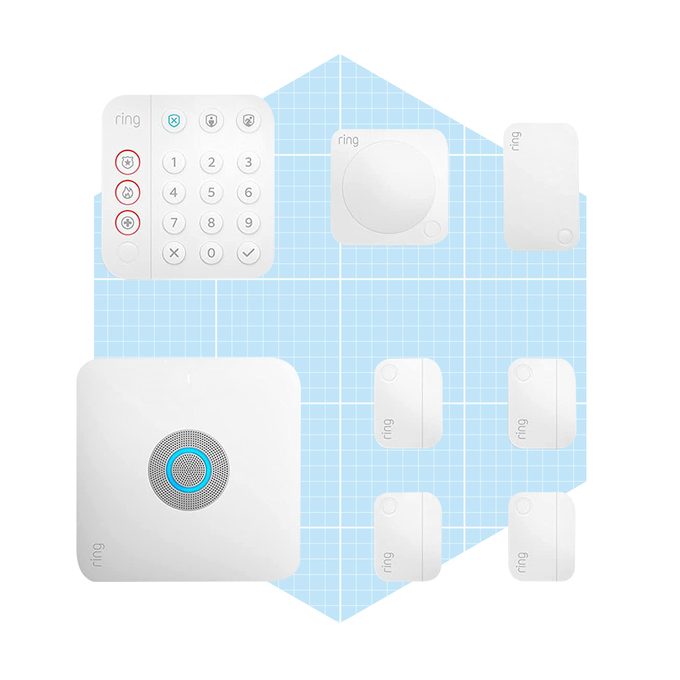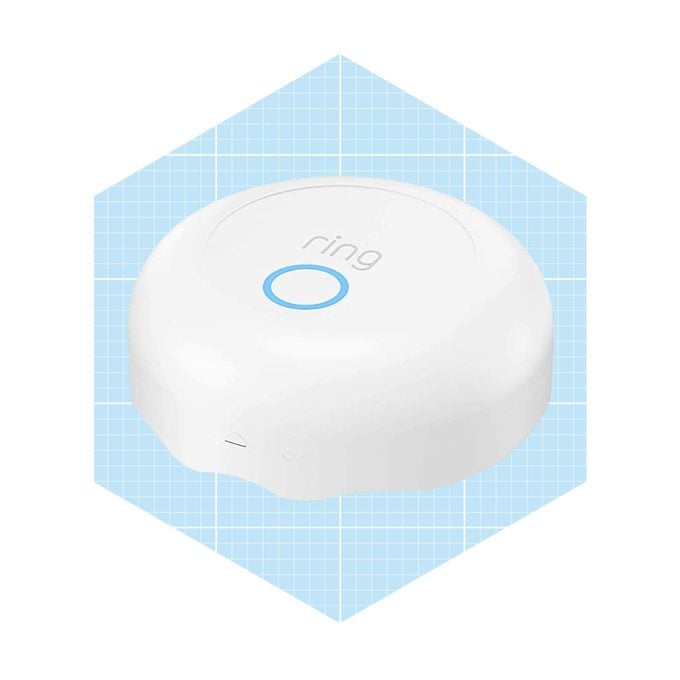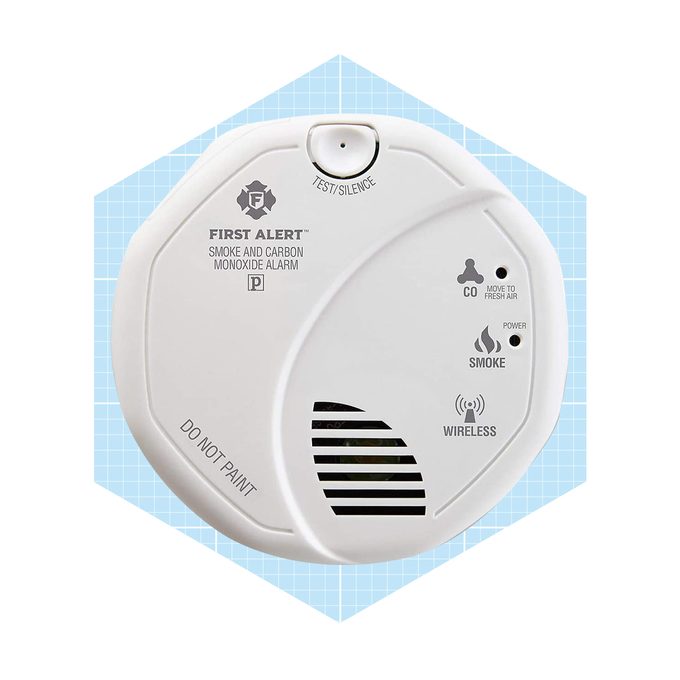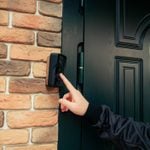5 Home Security Additions That Can Lower Your Homeowner’s Insurance Rate
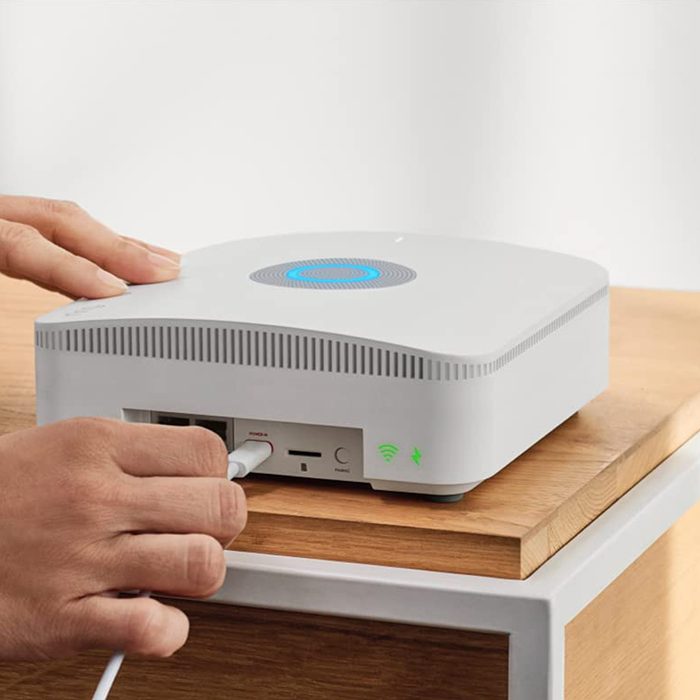
Smart home security upgrades protect your home and family and are easy to install. Did you know they also can save you money on your homeowner's insurance?
Our editors and experts handpick every product we feature. We may earn a commission from your purchases.
Dogs are great burglar alarms. But if yours sleeps through an intrusion, like mine did, it might be time for an upgrade to your home security. (Sorry, Frank.) Enter smart tech and the constantly-evolving Internet of Things (IoT).
The number of smart home devices that leverage IoT technology has skyrocketed in the last ten years, says Courtney Klosterman, a consumer trends expert for Hippo.
“What used to be considered advanced technology not seen in most homes is now available at every hardware store,” she says.
Insurance companies have taken note of the benefits of a connected world. Many offer discounts for adding smart smoke detectors, water monitors and alarm systems. “Since these devices help detect issues, minimize damages and make homes run more efficiently, they also minimize the number of claims you’ll file,” says Klosterman.
Ask your insurance agent about adding smart tech or a traditional monitored alarm system to your home. Savings can include a reduction in your premium or subsidized cost of the devices, installation or monitoring.
On This Page
Which Insurance Companies Offer Homeowner’s Insurance Discounts for Home Security Additions?
Most major companies including Hippo, Allstate, State Farm and Liberty Mutual offer discounts for updating your home security. Security upgrades don’t just protect you and your family. “You’re also showing your homeowner’s insurance provider that you’re a safe and educated homeowner, which can help you save money,” Klosterman says.
Each company offers different savings based on the type of smart monitoring you choose and other variables, like your location and the condition of your home. According to ValuePenguin, typical discounts range from five to 13 percent per year.
Hippo offers up to 10 percent savings per year for smart systems that alert you via phone, and up to 13 percent — plus deeper discounts on your premium — for 24/7 professionally-monitored smart security systems. Nationwide and USAA offer discounts on the equipment itself.
Check with your insurance agent to see if you qualify for home security discounts, and for any restrictions. Insurance companies often partner with home security companies like Ring or ADT, so you may need to use a specific brand to get the discount.
Five Best DIY Home Security Upgrades for Insurance Discounts
If you’re ready to add protection to your home and save money doing it, here are the best and most commonly discounted home security upgrades:
Motion detectors
Smart home alarms like Ring and SimpliSafe sense when doors and windows are opened or there’s motion in your home. This eight-piece Ring Alarm Security System costs about $300 and comes with easy DIY instructions. Get local alerts on your smart phone, or professional 24-hour monitoring for an additional cost.
Break-ins cost homeowners $3 billion in 2019, with an average individual loss of more than $2,600, according to the FBI. Depending on the insurance rate you’re paying and the discount you receive, these systems may pay for themselves, at least in peace of mind.
Leak monitor/water shut-off device
Smart leak monitors like the Ring Flood and Freeze Alarm are inexpensive ($35 at Amazon) and foolproof to DIY, but they must be used in conjunction with a larger alarm system. That adds to the cost, especially if you’re buying multiple detectors.
Devices that attach to your water line and learn your habits, like Moen’s Flo by Moen, are expensive (more than $600 depending on pipe size). But they allow homeowners to shut off the water remotely if it detects a leak. The cost may be worth it, especially if you have old pipes.
“Nearly one-third of all home insurance claims involve water damage, with an average claim costing over $10,000,” Klosterman says.
Smoke alarm
A home fire occurs every 93 seconds, according to the National Fire Protection Agency. Most building codes require smoke alarms on every floor and in every bedroom, so you should have multiple battery-operated or hard-wired smoke alarms in your home now.
What if you’re not home? Smart tech sensors like the Nest smoke alarm from Google send you an alert when they detect smoke, and even let you know where the fire is. The Nest comes in wired and battery-powered versions, so pick the one that suits your DIY ability and smoke detector power sources.
Carbon monoxide sensor
If you buy a smoke detector today, there’s a good chance it comes with an integrated carbon monoxide (CO) detector. That hasn’t always been the case, though, so check yours and upgrade if needed. Colorless, tasteless and odorless carbon monoxide kills hundreds of people a year and is impossible to detect without a sensor.
Carbon monoxide comes from combustible fuel sources like fireplaces, generators, gas ranges and grills. Keeping your appliances, furnace and flues in good working order will help prevent a deadly buildup of CO in your home. Smart CO detectors can be purchased as accessories to home security kits like Ring.
Deadbolts
This surprisingly basic upgrade means you can save up to five percent on your homeowner’s insurance, according to the Insurance Information Institute. Deadbolts aren’t difficult to DIY, either.
If you’re not ready to install smart devices, check with your insurance company to see if deadbolts, window reinforcement and other low-tech improvements offer savings.

